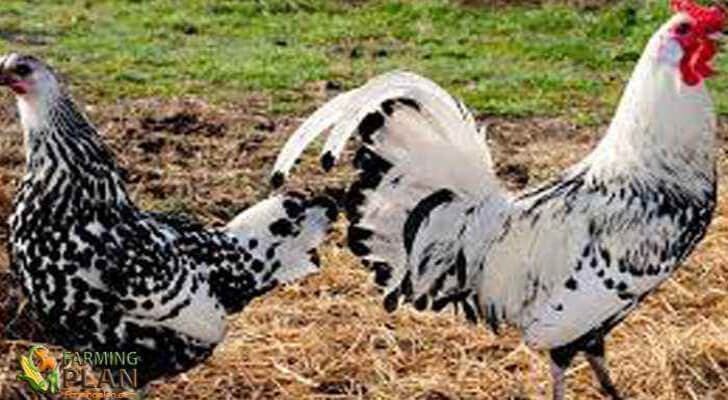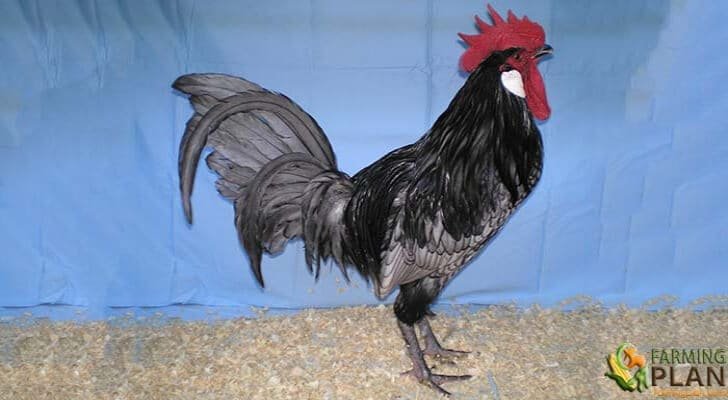Raising chickens successfully has long been an important and beneficial farm practice for farmers. One of the most used techniques for this is raising Desi Murgi Aur Nati Koli Chickens, two different varieties of Indian chickens that are beloved by many across the country. Not only do these birds bring numerous benefits to a farmyard, they provide delicious eggs and meat as well. In this blog post, I’ll be breaking down everything you need to know to raise these revered breeds on your own farm in a successful manner. Read on if you’re looking to become a master at seasonal flock management with the help of desi murgis aur nati kolis!

History & Origin Of Desi Murgi aur Nati Koli Chicken
Desi Murgi and Nati Koli Chicken have a deep-rooted history and origin in the Indian subcontinent. Desi Murgi and Nati Koli Chicken, meaning native chicken, and Nati Koli, meaning country chicken, were originally bred for their meat and eggs in rural parts of India. These chickens are smaller in size compared to their commercial counterparts and are known for their distinctive taste and texture. In recent times, there has been a renewed interest in these indigenous chicken breeds due to their nutritional value and sustainable farming practices. It’s fascinating how traditional breeds like Desi Murgi and Nati Koli Chicken are making a comeback in modern times as people have started to appreciate their significance in the cultural and culinary heritage of India.
Characteristics
Desi Murgi and Nati Koli are two types of chicken breeds that are quite popular in India. These breeds are native to the Indian subcontinent and have distinct characteristics. Desi Murgi and Nati Koli Chicken, also known as the Indian Country chicken, has a strong immune system, can thrive in a free-range environment and is great for producing eggs and meat. On the other hand, Nati Koli, which translates to “village chicken”, is a hardy breed that adapts well to harsh conditions and can forage for its own food. It has a distinct taste that makes it a favorite amongst gourmands. The unique features of these two chicken breeds make them sought after by farmers and consumers alike.
Feed
Looking for a protein-rich and flavorful meal? Look no further than Desi Murgi and Nati Koli chicken. These two varieties of chicken are known for their taste and nutritional benefits. Desi Murgi and Nati Koli Chicken, also known as country chicken, is free-range and has a distinctive taste that comes from its natural diet. Nati Koli, on the other hand, is a breed of chicken native to Karnataka, India, and is known for its unique flavor and aroma. Whether you’re looking to cook up a delicious curry or grill some chicken for a summer barbecue, Desi Murgi and Nati Koli chicken are sure to impress. So next time you’re at the market, be sure to give these tasty birds a try!
Usage
Are you tired of the same old chicken recipes? Spice up your mealtime with Desi Murgi and Nati Koli Chicken and nati koli chicken! These two types of chicken, which are native to India, offer a unique and flavorful taste compared to traditional chicken breeds. Desi murgi and nati koli chicken are also known for their leaner meat and higher nutritional value. With their tender texture and rich flavor, these chickens are perfect for curries, soups, and other dishes. So, why settle for bland and boring chicken when you can elevate your palate with desi murgi and nati koli chicken? Try them out for your next meal and taste the difference!
Special Feature
When it comes to poultry, there’s no denying that desi murgi and nati koli chicken are a cut above the rest. These two varieties of chicken are special for a number of reasons. For starters, they come from free-range birds, which means that they’re raised in a natural environment without any hormones or antibiotics. This makes them healthier and more nutritious than their factory-farmed counterparts. Additionally, desi murgi and nati koli chicken have a unique texture and flavor that you won’t find in other types of chicken. They’re firmer, meatier, and more flavorful thanks to their diet of insects, grains, and grasses. So if you’re looking for a healthier and more delicious alternative to regular chicken, give desi murgi and nati koli chicken a try!
Understanding
If you’re a fan of chicken, you may have come across the terms Desi Murgi and Nati Koli thrown around. These are two types of chickens that vary in numerous ways, from their appearance to their taste. Desi Murgi and Nati Koli Chicken, also known as Indian Native Chicken, is a breed that originated in India and has since spread to other parts of the world. They’re distinguishable by their flashy feathers and rough appearance. On the other hand, Desi Murgi and Nati Koli Chicken are shorter, plumper, and don’t have as distinct a look as their Desi Murgi counterparts. But the main difference between the two is taste: Desi Murgi and Nati Koli Chicken is considered to be richer, more flavorful, and generally pricier than Nati Koli. Understanding the difference between these two types of chickens is crucial for anyone looking to explore the world of local and organic foods.
Choosing the Right Breed for You
Choosing the right breed of dog can be an incredibly exciting and fulfilling experience. With so many different breeds out there, there’s sure to be one that perfectly fits your lifestyle and personality. Whether you’re looking for a loyal companion to cuddle up with on the couch, or a high-energy pup to keep you active and on-the-go, there are countless factors to consider when making your choice. Some may prefer smaller breeds such as chihuahuas or pugs, while others may want larger breeds like labradors or golden retrievers. Whatever your preference, it’s important to do your research and choose a breed that not only suits your needs but also feels like the perfect match for you. After all, the right dog is a lifelong companion and beloved member of the family.
Essential Equipment
Are you considering raising chickens? Before bringing these feathered friends into your backyard, it’s important to have the essential equipment for a successful and healthy flock. First and foremost, you will need a sturdy coop with proper ventilation, nesting boxes, and roosting perches for your chickens to rest on at night. Additionally, you’ll need a reliable source of food and water, as well as a feeder and waterer. Other essential equipment includes bedding, such as wood shavings or straw, and a secure fencing system to protect your flock from predators. With the right equipment in place, you’ll be on your way to enjoying fresh eggs and the many benefits of raising chickens.
Creating an Ideal Environment
Keeping chickens is not only a fun hobby, but can be a sustainable way to produce eggs and meat for your family. However, to keep your chickens healthy and productive, it’s important to create a suitable environment for them to live in. This means providing enough space for them to roam and forage, ensuring they have access to clean water and nutritious food, and keeping their living area clean and dry. Additionally, chickens need protection from predators and extreme weather conditions. Creating an ideal environment for your feathered friends will not only benefit them, but also provide you with healthy and delicious eggs and meat.
Cleaning and Sanitizing
Keeping your chicken coop clean and sanitized is crucial for the health and wellbeing of your feathered friends. Regular cleaning not only helps prevent the spread of diseases but also keeps the coop smelling fresh and hygienic. The first step is to remove any uneaten food, scattered bedding, or droppings from the coop floor. Use a rake, shovel or a handheld dustpan and brush to do this. Next, hose down the coop’s interior walls and floor with water, and scrub them clean with a mild detergent or vinegar-probiotic cleaning solution. It’s essential to sanitize your coop with a disinfectant or diluted bleach solution, especially after an illness outbreak. A clean and disinfected coop is a happy and healthy home for your chickens!
FAQ
What are the benefits of eating chicken?
Eating chicken can provide numerous benefits to your health and wellbeing. Here are some of the major advantages, Protein: Eating chicken is an excellent source of lean protein, which plays a key role in maintaining healthy muscles, organs and bones. A three-ounce serving of cooked, boneless chicken provides 26 grams of high-quality protein. This makes it an ideal choice for people looking to build muscle or lose weight as part of a balanced diet plan.
How can I make my chicken taste better?
Creating delicious, flavorful chicken dishes doesn’t have to be complicated or time consuming; with a few simple tips and tricks you can upgrade your boring chicken into something extraordinary. Here are several strategies you can use to make any chicken meal taste better.
How can I make desi murgi chicken?
Desi murgi chicken is one of the most popular dishes in India and has long been a staple of Punjabi cuisine. It has a distinct flavor that sets it apart from other chicken preparations, and making it at home is easy enough for anyone with basic cooking skills.
Conclusion
After considering Desi Murgi and Nati Koli chickens, it’s clear that there are many factors to consider when choosing which breed is right for you. Not only should you be aware of their distinct differences, characteristics, diets, and special features – but also have a suitable environment, sanitation standards and tools to ensure your chickens remain in optimum health. As the two Indian chicken varieties have become increasingly popular over the years, it’s important to bear in mind that they can vary greatly depending on the variety or breed you choose. However, by following these steps and doing your research beforehand, you can make an informed choice that is perfect for your needs. And once you do find the right breed of Indian chicken for you – both types of chook will reward you with plenty of eggs!


